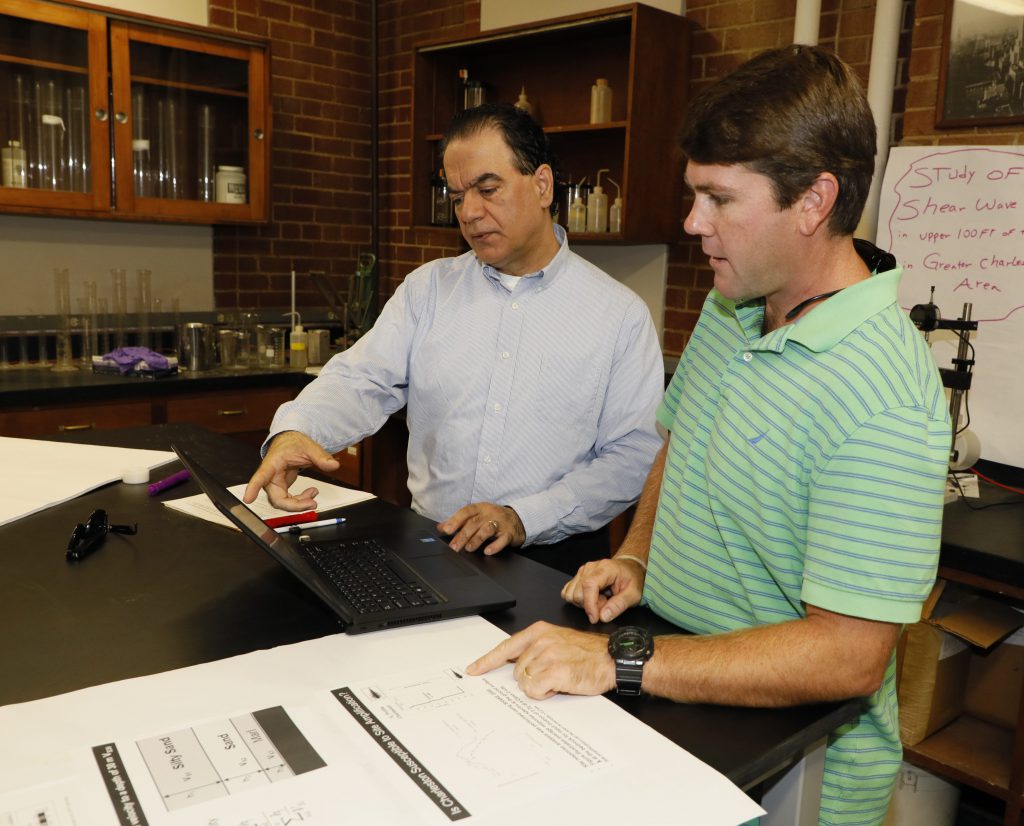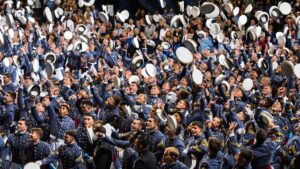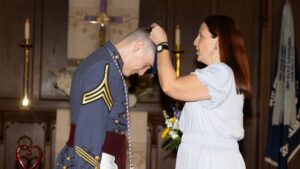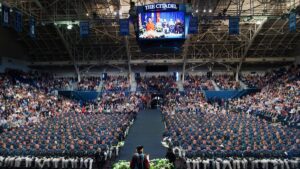
When an earthquake occurs, a wave of energy pushes up through the earth.
“Assessing how that energy, the shear velocity of that wave, will impact the top 100 feet of soil is allowing us to model the possible impacts that would be felt above ground here in the Charleston area should another big earthquake occur,” said Professor Simon Ghanat, Ph.D., a member of The Citadel Department of Civil and Environmental Engineering faculty with a specialty in seismic site response studies. “The largest earthquake in the history of the southeastern U.S. was right here in 1886 and killed more than 100 people.”
Ghanat explained that Charleston is still considered an earthquake hotspot based on geological surveys.
Working with him on the earthquake shear wave velocity project is Emmett Smith, who is majoring in civil and environmental engineering through The Citadel’s Evening Undergraduate Studies program.
“I work for the city of Charleston and during the regular academic year take classes in the evenings at The Citadel,” Smith said.
To get started Smith accessed data from several engineering companies, and then compiled it through a variety of formulas to estimate the shear wave velocity of the top 100 feet of the soil profiles. They are working to use the shear wave velocities to predict the response of soils at a variety of Charleston-area locations.
“The top 100 feet are the most important when it comes to potential damage. Soil in Charleston is sandy and unstable because it’s like a sponge. It can even liquefy in some cases,” Ghanat said.
They plan to publish their findings when they complete their research in hopes of developing a common application for the use of the data.
“We’ve got a great working relationship and this process has helped me with my communication and observation skills too,” Smith said. “Being a paid researcher for this project with Professor Ghanat has provided me the chance to be very focused on my studies.”
For more information about The Citadel’s Summer Undergraduate Research Experience, or other research opportunities please visit The Citadel Undergraduate Research Office webpage, or email uro@citadel.edu.

 Introducing The Citadel Class of 2025
Introducing The Citadel Class of 2025 Future nurses graduate during pinning ceremony at The Citadel
Future nurses graduate during pinning ceremony at The Citadel Preparing for The Citadel Class of 2025 commencement ceremonies
Preparing for The Citadel Class of 2025 commencement ceremonies

